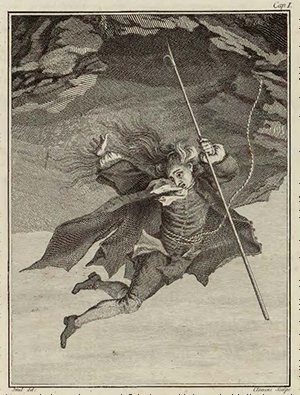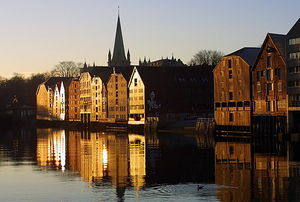Difference between revisions of "Futurescapes"
m (Changed protection level for "Futurescapes" ([Edit=Allow only autoconfirmed users] (indefinite) [Move=Allow only autoconfirmed users] (indefinite))) |
m |
||
| Line 16: | Line 16: | ||
<center>[[File:FuturescapeLogo.png|800px]]</center> | <center>[[File:FuturescapeLogo.png|800px]]</center> | ||
<br/> | <br/> | ||
| − | <center><font size="6" style="color:# | + | <center><font size="6" style="color:#000000">Symposium in New Media,Technology, and the Humanities</font></center> |
| − | <center><font size="5" style="color:# | + | <center><font size="5" style="color:#000000">14-15 March 2016, Trondheim, Norway</font></center> |
| − | + | ||
| + | <div style="color:#000000;"> | ||
The Faculty of the Humanities at the [http://www.ntnu.edu/ Norwegian University of Science and Technology] (NTNU) is pleased to announce a two-day Symposium in New Media,Technology, and the Humanities organized in connection with the [http://metamorf.no/2016/ Meta.Morf Art +Technology Biennale] which is devoted to the technology of outer space and interstellar travel. | The Faculty of the Humanities at the [http://www.ntnu.edu/ Norwegian University of Science and Technology] (NTNU) is pleased to announce a two-day Symposium in New Media,Technology, and the Humanities organized in connection with the [http://metamorf.no/2016/ Meta.Morf Art +Technology Biennale] which is devoted to the technology of outer space and interstellar travel. | ||
| Line 72: | Line 72: | ||
More information coming soon. | More information coming soon. | ||
| − | |||
| − | |||
| Line 93: | Line 91: | ||
Futurescapes is organized by [http://www.ntnu.no/ansatte/dorothee.beermann Dorothee Beermann,] Professor of Linguistics and [http://www.ntnu.no/ansatte/hanna.musiol Hanna Musiol,] Associate Professor of English, in partnership with [http://www.kit.ntnu.no/ Kunstakademiet i Trondheim] (KiT), [http://metamorf.no/ Meta.Morf,] and Trondheim Electronic Arts Center (TEKS).The event is supported by the Institute for Language and Literature, The Humanities Faculty at NTNU, and NTNU libraries: the Gløshaugen Library, the Dragvoll Library, and the Gunnerus Library. | Futurescapes is organized by [http://www.ntnu.no/ansatte/dorothee.beermann Dorothee Beermann,] Professor of Linguistics and [http://www.ntnu.no/ansatte/hanna.musiol Hanna Musiol,] Associate Professor of English, in partnership with [http://www.kit.ntnu.no/ Kunstakademiet i Trondheim] (KiT), [http://metamorf.no/ Meta.Morf,] and Trondheim Electronic Arts Center (TEKS).The event is supported by the Institute for Language and Literature, The Humanities Faculty at NTNU, and NTNU libraries: the Gløshaugen Library, the Dragvoll Library, and the Gunnerus Library. | ||
| + | |||
| + | |||
| + | |||
| + | </div> | ||
Revision as of 13:34, 28 September 2015
This event is supported by TypeCraft

The Faculty of the Humanities at the Norwegian University of Science and Technology (NTNU) is pleased to announce a two-day Symposium in New Media,Technology, and the Humanities organized in connection with the Meta.Morf Art +Technology Biennale which is devoted to the technology of outer space and interstellar travel.
Futurescapes shares the Biennale’s interest in interplanetarity, time, and the cosmic beyond, and in humans who dream, invent, construct, and destroy their way into the future. Specifically, the Symposium will explore new locations and entanglements of the humanities and technology, and offer a place for diverse scholars and educators to showcase their cosmic or future-oriented work across disciplinary boundaries. But, we will also learn new methodologies and interrogate critically how and with what tools humanists and technologists communicate with each other, think big ideas, and make things. Finally, we want Futurescapes to address the ethical, legal, and political implications of such work, and how it bears on the futures of our diverse fields.
Keynote speakers
Kari Kraus, an Associate Professor in the College of Information Studies and the Department of English at the University of Maryland, and also an affiliated faculty member with the UMD Human-Computer Interaction Lab. Kraus' work focuses on new media and the digital humanities, digital preservation, game studies and transmedia storytelling, and speculative design. Her diverse collaborations and projects include preserving virtual worlds, Alternate Reality Games (ARGs), storytelling in the service of education and design, and Exploring Invisible Traces in Historic Recordings, which used audio forensics techniques to help recover provenance information about undated recordings. In 2015, she entered into a Space Act Agreement with NASA. Kraus writes occasionally for the New York Times and the Huffington Post.
Tobias Blanke, a Senior Lecturer at the Centre for e-Research at King's College in London, is on the board of directors of [DARIAH-EU] which is a social and technical infrastructure for digital research in the Arts and Humanities. His academic background is in philosophy and computer science. He has authored numerous papers and 3 books in a range of fields on the intersection of humanities research and computer science. His work has won several prizes at major international conferences including best paper awards. In 2012, he has been a Visiting Professor at the Göttingen Centre for Digital Humanities. Prior to joining King’s in 2007, Tobias worked at Credit Suisse in the city of London as a lead analyst and developer in a data warehouse, at Free University Berlin, and several smaller media companies in Berlin. Since joining academia in 2007, Tobias has taken leadership roles in multi-disciplinary research projects.
Contents
Call for Projects
Futurescapes will showcase interdisciplinary and/or digital humanities projects. Scholars, practitioners, and students from the fields of technology, the arts, and the humanities are encouraged to submit their work. We are especially interested in projects addressing any of the following:
Digital humanities, interdisciplinary methodologies, and new research questions. How have the humanistic thought and creative practices associated with fine arts, music, popular culture transformed neuroscience, information technology, communication, and computational sciences? Conversely, how has the digital turn transformed the supposedly “analogue” disciplines of literary studies, linguistics, history, or philosophy? What do text mining, data visualization, data sonification, topic modeling, textual annotation, digital curation offer the humanities? What are the new research questions they enable us to ask? What are the benefits and limitations of this digital and big-data turn and these cross-disciplinary methodologies?
Communication, networks, interfaces. Many disciplines, most obviously linguistics but also media studies, sociology, and history, computational sciences, examine how humans communicate with each other. New technologies are now helping us create new languages, sounds, and interfaces of communication. What are these new “languages” and communication networks that propel us into the future?
Preservation, archives, and curation. Each field—from linguistics to urban planning to library sciences to musicology to archeology—has different rules and methods for determining what to preserve as a “valuable” archive of the past. Such disciplinary archives have a crucial impact on how we envision the future. What are your field’s collection practices? What does it collect as “evidence” of the past? What is the impact of new technologies and new media—immersive technologies, crowdsourced archival platforms, or social media—on the preservation, curation, display, and popularization practices in and of your field? How do they impact the future of your field?
Speculative practices across fields. How do different disciplines narrate and landscape the future? How do they harvest the “past” for this purpose? Who has the privilege, the right, to create and narrate the future? What is the gender of the future? How are our futures classed and "raced"?
Disciplinary keywords in translation. What are the humanities and technical sciences’ key terms (memory, space, future, data, narrative, network, design, for instance), and how do they travel/translate across disciplines?
Critical pedagogy. How can we use technology in the service of critical pedagogical practices? How can technology help build collaborative and critical intellectual communities? Activate new student networks? Transform teaching, assessment, and reflection into dialogical practices? How can we turn students and educators into active global digital citizens?
Sustainable environments. How do interdisciplinary humanities engage with sustainability in the environmental and temporal senses? How can those of us working in digital humanities create projects that last, instead of dying of “digital rot”? Can the humanities help us better understand sustainability? Can technology make the humanities more sustainable?
Power, legal regimes, and access to technology and the humanities. How are existing power frameworks (also within the humanities themselves) consolidated, transformed, challenged by new technologies? How do intellectual property laws shape knowledge production and sharing in the humanities, the technical and science fields, and across the globe? How does technology enable/disable access to the humanities? Can the humanities make technology more accessible?
Submissions of Abstracts & Proposals
We invite Paper or Mixed-Media Project Abstracts, Proposals for Mini Workshops, and Proposals for Lightning Shorts. Please email them together with 100-word bios stating your academic affiliation and research interests to futurescapes@hf.ntnu.no.
- Abstracts of up to 500 words should be sent by 31st November 2015.
Your presentations/talks should be no longer than 20 minutes and should acknowledge the interdisciplinary character of Futurescapes.
- Proposals for Mini Workshops of up to 250 words should be sent by 31st October 2015.
Your workshop proposals should introduce specific tools or interdisciplinary methodologies (for instance content and metadata annotation, data visualization/sonification tools, etc.) but also explain what kinds of research or pedagogical projects can be accomplished using these tools. Please be specific about the kinds of resources you will need to run your session.
- Proposals for Lightning Shorts of up to 250 wordsshould be sent by 31st November 2015.
Your Lightning Shorts micro talk/presentations (4-5 minutes) should introduce novel research, teaching, or digital humanities projects that sit at the intersections of new media, technology, science, and the humanities. PhD and MA students are particularly welcome to showcase their work.
Symposium Logistics
More information coming soon.
Organizers, Sponsors, & Partners
Futurescapes is organized by Dorothee Beermann, Professor of Linguistics and Hanna Musiol, Associate Professor of English, in partnership with Kunstakademiet i Trondheim (KiT), Meta.Morf, and Trondheim Electronic Arts Center (TEKS).The event is supported by the Institute for Language and Literature, The Humanities Faculty at NTNU, and NTNU libraries: the Gløshaugen Library, the Dragvoll Library, and the Gunnerus Library.

